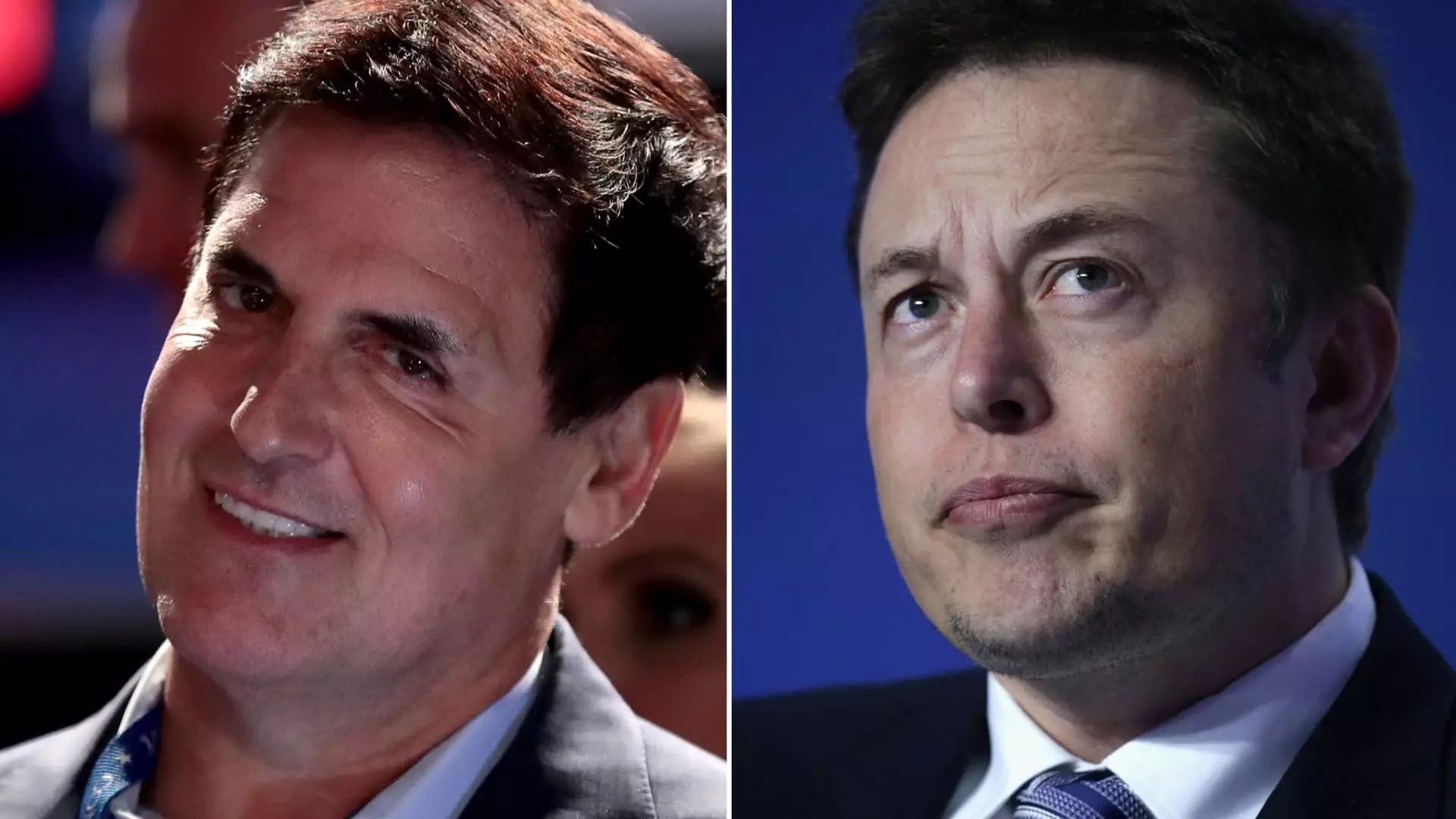In the realm of business and politics, allegiances can often be fleeting and fraught with risk. This sentiment was articulated recently by billionaire investor Mark Cuban as he advised fellow billionaire Elon Musk against forming a political alliance with Donald Trump. Cuban’s cautionary statements stem from observations about loyalty and the often transactional nature of political relationships, especially regarding high-stakes figures like Trump. As Musk amplifies conspiracy theories and aligns himself with Trump, the implications of such a partnership raise essential questions about trust, reciprocity, and the potential fallout from failed political debts.
Cuban’s analysis provides a stark reminder that loyalty in politics can be a precarious undertaking. He articulated a vital point in his social media address to Musk: the expectation for Trump to reciprocate loyalty might lead to disillusionment when the time comes for Musk to require assistance. “His loyalty is only to himself,” Cuban warned, capturing the inherent risks of trusting a figure like Trump. This perspective resonates with the experiences of countless others in the political sphere who have faced disappointment after placing their faith in leaders who prioritize their self-interest above all else.
Elon Musk’s endorsement of Trump is especially noteworthy given his previous criticisms of the former president. This apparent shift underscores the complexities of political affiliations, where one can quickly pivot in response to evolving landscapes. As a prominent figure in technology and innovation, Musk’s support for Trump, who has cultivated an image of zealotry among his base, presents an intricate narrative that delves into the psychology of influential individuals in politics.
Implications for Business and Political Agendas
The intersection of business interests and political ideologies serves as the backdrop for this ongoing saga. Both Cuban and Musk hold significant stakes in shaping the regulatory environment in which they operate, and both are keenly aware of the influence wielded by political leaders. Cuban’s alignment with Vice President Kamala Harris, as he describes her as “better for business,” contrasts sharply with Musk’s potential alignment with Trump. Such opposing viewpoints underscore broader implications for corporate governance, economic policy, and the regulatory landscape that affects global markets.
Cuban’s support for Harris is strategic, aligning him with an economic agenda that seeks to reform corporate taxation and promote equitable business practices. In a time of skepticism regarding economic policies, Cuban advocates for the benefits of a Democratic approach, which he believes fosters a more conducive environment for business operations. This highlights the collage of perspectives that exist amongst the wealthy elite, emphasizing how political affiliations can dictate the course of business trends and regulatory measures.
As both billionaire entrepreneurs navigate their ambitions, their differing political maneuvers will likely shape their trajectories. Musk’s proposal for a “government efficiency commission,” if Trump secures a second term, signifies his interest in influencing governmental processes. His aspirations hint at a desire to merge his entrepreneurial spirit with political efficiency—a juxtaposition that raises questions about the boundaries of business leaders’ involvement in legislative frameworks.
Conversely, Cuban’s eye on a role within the Securities and Exchange Commission speaks volumes about his commitment to reform and oversight in financial markets. His public position as a surrogate for Harris indicates a willingness to challenge norms and advocate for policies that he deems necessary for advancing business interests in a more sustainable and equitable manner. This line drawn between them – Musk’s alignment with more conservative fervor and Cuban’s embrace of progressive economic policies – provides a snapshot of the diverging pathways billionaire entrepreneurs may take in the upcoming election cycle.
The interplay between Mark Cuban and Elon Musk serves as a microcosm of the larger issues surrounding political alignment in contemporary society. As Musk contemplates his new political alliances, Cuban’s wise words caution that trust in political figures can lead to disillusionment. The ramifications of such decisions extend beyond personal aspirations; they impact markets, policies, and ultimately the fabric of society. As these titans of industry maneuver through a complex political landscape, the stakes remain high, and the future of their endeavors may hinge on the very alliances they forge today.


Leave a Reply